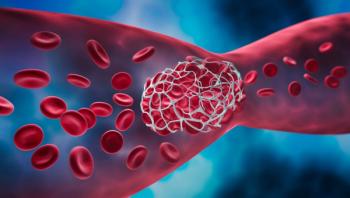
Academic Institutions Hold Key to Gene Therapy Price Reduction, Say Academic Experts
Nonexclusive licensing of discoveries made at academic institutions would work to lower prices, say the writers of a recent opinion piece published in the New England Journal of Medicine. CMS price negotiation under the Inflation Reduction Act will not have any immediate effect on gene therapy prices and may never have.
Just a handful of gene therapies have arrived on the market in the past eight years, but hundreds more are in the pipeline, some of which target common diseases.
These therapies have great potential for curing disease because they alter parts of a patient's genome that give rise to disease, although in clinical practice actual results are highly variable.
The high prices of these products can be tremendously disruptive to health care systems due to the strain on budgets and restricted access for patients, wrote healthcare economist
The lead author of a
Nonprofit research centers could commercialize these products themselves by subcontracting the development and marketing of these agents, she suggested.
“All gene therapies approved in the United States thus far have their origins in academic institutions or spinoffs from such institutions that developed indispensable know how and underlying forms of technology,” wrote Vokinger and her co-authors, Jerry Avorn, M.D., and Aaron Kesselheim, M.D., J.D., M.P.H., who are part of the Program on Regulation, Therapeutics, and Law Division of Pharmacoepidemiology and Pharmacoeconomics at Brigham and Women’s Hospital in Boston and Harvard Medical School.
FDA approved Hemgenix (etranacogene dezaparvovec), an adeno-associated virus vector-based gene therapy for the treatment of adults with hemophilia B in November 2022. Some of the research into the use of an adeno-associated viral vector (AAV) to promote expression of factor IX in humans with hemophilia B was performed more than 20 years ago by clinicians and academics unaffiliated with the commercial partnership between CSL Behring and uniQure that launched Hemgenix.
“These results of the first parenteral administration of [recombinant] AAV demonstrate that administration of AAV vector by the intramuscular route is safe at the doses tested and effects gene transfer and expression in humans,” she wrote at the time.
In her editorial, Vokinger suggested that “Regulators and policymakers could encourage institutions that receive federal funds to engage in nonexclusive licensing for certain key platform innovations that are part of the gene therapy processes they have developed, in keeping with their mission and in recognition of the public funding that supports such discoveries.”
She also suggested that Congress broaden drug-price negotiation allowances, or even carve gene therapies out of the commercial domain and have them “paid for by the federal government using prices that are based on their documented therapeutic value.”
Another factor possibly affecting gene therapy prices is the provision of the Inflation Reduction Act that authorized the Centers for Medicare and Medicaid Services (CMS) to negotiate prices for selected drugs, starting with 10 Part D drugs in 2026.
Clotting factor agents are covered by Medicare Part B and will not be among those eligible for price negotiation before 2028. In addition, biologics — and gene therapies are categorized as biologics — are not eligible for negotiation until
There is also some question whether agents that serve only a relatively small patient population, even if their prices are higher, are appropriate targets for negotiation.
Newsletter
Get the latest industry news, event updates, and more from Managed healthcare Executive.























